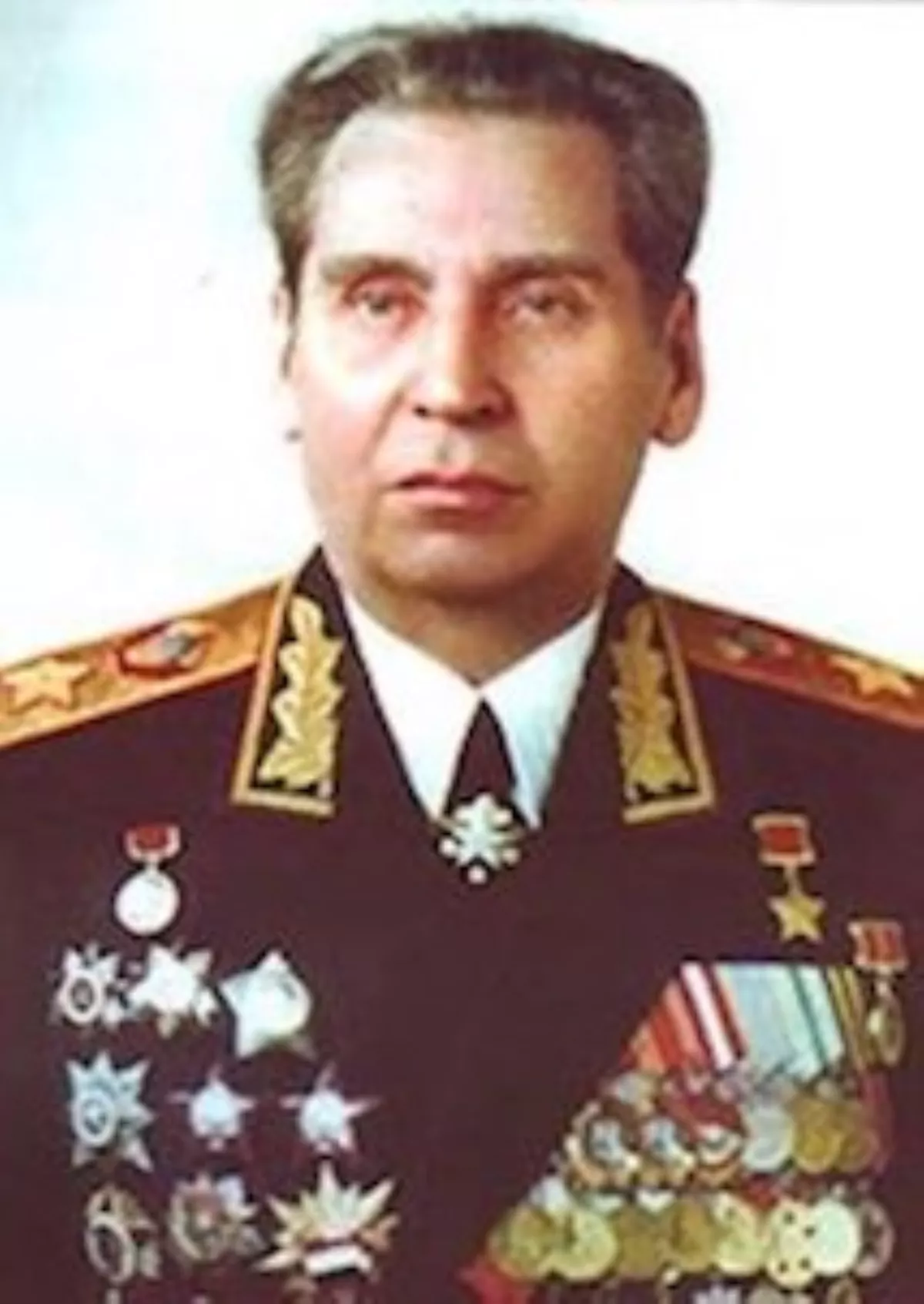 1.
1. Nikolai Vasilyevich Ogarkov was a prominent Soviet military personality.

 1.
1. Nikolai Vasilyevich Ogarkov was a prominent Soviet military personality.
Nikolai Ogarkov was promoted to Marshal of the Soviet Union in 1977.
Nikolai Ogarkov became widely known in the West when he became the Soviet military's spokesman following the shootdown of Korean Air Lines Flight 007 near Moneron Island in September 1983.
Nikolai Ogarkov was dismissed as Chief of the General Staff on 6 September 1984.
Nikolai Ogarkov joined the Red Army in 1938 and graduated from the Astrakhan Rifle and Machinegun School.
In June 1942, Nikolai Ogarkov served as a Brigade Engineer of the 61st Naval Rifle Brigades and from December 1942, he served as an assistant to the chief of staff of the Engineering Troops of the 32nd Army.
In November 1943, Nikolai Ogarkov was assigned to the 2nd Ukrainian and 3rd Ukrainian Fronts.
From 1945 to 1946 Nikolai Ogarkov was assistant and senior assistant to the chief of staff of the Engineering Troops of the Carpathian Military District.
Nikolai Ogarkov was the candidate member of the CPSU Central Committee from 1966 to 1971 and member of the CPSU Central Committee from 1971 to 1991.
Nikolai Ogarkov served as deputy of the Council of Nationalities of the Supreme Soviet of the USSR from 7th to 11th convocations from 1966 to 1989, from the Lithuanian SSR.
From March 1974 to January 1977, Nikolai Ogarkov was the Deputy Minister of Defense of the USSR, chairman of the State Technical Commission of the USSR and member of the Collegium of the Ministry of Defense of the USSR.
On January 8,1977, General Nikolai Ogarkov was appointed Chief of the General Staff of the Armed Forces of the USSR and first Deputy Minister of Defense of the USSR.
Nikolai Ogarkov was known as an active opponent of the Soviet invasion of Afghanistan in 1979, for which he had heated disputes with a member of the Politburo of the Central Committee of the CPSU and Minister of Defence Dmitry Ustinov.
Nikolai Ogarkov appeared on television and in the news conference as Soviet military's spokesman on the incident, where he defended shooting down of the airliner and said the decision to shoot down the plane was "not an accident or an error" and had been made by a local commander, after it was assumed that the airliner was a reconnaissance aircraft on a spying mission.
Nikolai Ogarkov was a strong advocate of reconstructing the huge, unwieldy Soviet military machine into a smaller, more compact strike force based around advanced technology.
Nikolai Ogarkov paid serious attention to the development of the theory of control of Strategic Missile Forces and missile defense, in fact, he created a center for operational-strategic research at the General Staff.
Former secretary of the Security Council of Russia Andrey A Kokoshin recalled that Ogarkov was among the pioneers of considering the issues of the modern revolution in military affairs.
Nikolai Ogarkov was fired by the Politburo on 6 September 1984 in both his capacity of Chief of the General Staff and First Deputy Minister of Defense, and was replaced by Sergey Akhromeyev.
The political analyst Ilya Zemtsov has argued that Nikolai Ogarkov's removal was the result of Grigory Romanov's failed ambitions to succeed Konstantin Chernenko as General Secretary.
Romanov, who was preparing for a diplomatic mission, could not protect Nikolai Ogarkov from being dismissed from his positions for "unpartylike tendencies".
Contrary to Zemtsov, Garthoff argued that "There is no indication that Nikolai Ogarkov was involved in factional political infighting".
Nikolai Ogarkov was after made commander of a newly created Western theater of war command.
Kokoshin noted that consultations with Nikolai Ogarkov were very important for working out optimal decisions on the first state arms program of the Russian Federation.
Nikolai Ogarkov died on 23 January 1994, in Moscow after a long illness.
Nikolai Ogarkov was buried with full military honors at the Novodevichy Cemetery.